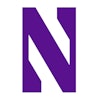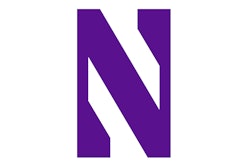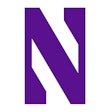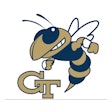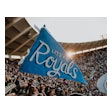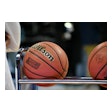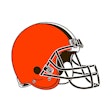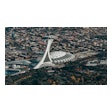Copyright 2014 Cheyenne Newspapers, Inc.
All Rights Reserved
By Robert Gagliardi
LARAMIE - With the renovations at the Arena-Auditorium set to begin, some University of Wyoming season-ticket holders are leery about what it means for them.
Others are confused.
And still others are downright upset.
The capacity of the A-A will be reduced from 15,000 to about 11,600 when the first phase of work is done before the start of next season.
And the number of prime seats below the concourse will dip from about 5,000 to between, 4,400 and 4,500.
That means that many fans who have had season tickets since the first game in the facility on Feb. 20, 1982 will have different seats - and perhaps different quality seats - based on the new configuration.
Re-seating will take place for both men's and women's basketball.
RoseMarie Aridas of Laramie, a women's basketball season-ticket holder, calls the proposed process "elitist."
The process
UW has 3,533 season-ticket holders for men's basketball, or about 1,400 accounts. For women's basketball, those figures are 2,337 and about 900, respectively.
Season-ticket holders for both teams will have the first chance to buy seats in the new arena. But some things will change.
First, UW has erased a grandfather clause from long-time season-ticket holders. That kept them from having to pay seat donations required by the fundraising arm for UW athletics - the Cowboy Joe Club.
Fans who have had season tickets since the A-A was built, for instance, were not required to make seat donations on top of what they paid for season tickets. That fee has been $750 per seat for the better part of 20 years.
"We eliminated grandfathering because we wanted to be consistent across the board with all of our season ticket holders," said Randy Welniak.
He is UW's senior associate athletics director for development and the head of the Cowboy Joe Club.
"By eliminating grandfathering, every season ticket holder will pay the same price as the person sitting right next to them."
Seat donation fees for men's basketball will be $5,000 per seat on the court, $250 below the concourse level and $125 in some sections at and above the concourse.
There will be seats above the concourse that will not require donations.
Women's basketball donations will be $1,000 courtside, $100 for others and zero above the concourse.
Welniak said the money goes toward scholarships for UW's student-athletes. He added that the cost of scholarships has risen 39 percent since 2009.
Money from the Cowboy Joe Club is part of the athletics department's funding, but its primary use is to provide scholarships.
Welniak said the other 10 Mountain West schools have some form of seat donation programs. He added that UW's fee is in the lower half of the MW.
Season ticket prices for next season won't go up; single-game prices have yet to be announced.
The order of who picks their seats first will be decided by that person's priority points within the Cowboy Joe Club.
Members get points based on how long they have had season tickets, their donations to the Cowboy Joe Club, if they are a UW alums, etc.
Those with the most points will get the first chances to buy tickets.
Once a list of season-ticket holders is set by priority points, UW get in touch with them in early April. They will be asked to set up appointments to choose and buy their season tickets - if they choose to do so.
Appointments can be made in person, but once the construction starts, fans will not be able to see the seats for themselves.
Instead, UW has hired Ballena Technologies of Alameda, Calif. It will provide fans with a virtual, three-dimensional look at seat locations.
Once all the season-ticket holders have had their turns, UW will open sales to others on July 1.
Misconceptions
Cotton Jones of Cheyenne and his family have had men's season tickets since the A-A opened. He initially was not happy with the re-seating plan.
"That is ridiculous," he said. "You are going to lose a serious amount of your fan base. People will be buying single-game tickets instead of season tickets to avoid the (donation) seat change."
Jones may be right.
But if you are a season-ticket holder and you give $1,000 annually to the Cowboy Joe Club, as Jones does, that goes toward your seat donation.
So if you wanted to buy four season tickets at the $250 per seat donation, you would not have to: the $1,000 covers that.
Jones said that was not communicated well from literature he got from the Cowboy Joe Club.
"If my (club) donation satisfies the seat requirement, I will definitely consider picking my tickets back up," he said.
But the opinions of those longtime season ticket holders who do not give annually to the club are not as positive.
John Harju of Cheyenne says the seat-donation requirement will stop many from renewing their tickets. He said that is especially true for those with limited incomes and those may be forced to move from people they have been sitting next to for years.
He's not the only one.
Said Aridas, "This is a social event and creates community that will be lost."
Welniak said he understands fans' frustration:
"(But) what we are trying to do is at least reward our long-time season-ticket holders by giving them additional priority points to help them choose the best seats they possibly can purchase."
Welniak said if someone has had season tickets since the A-A opened, he or she will get five priority points per year. That is 150 points, which is the equivalent of donating $15,000 to the Cowboy Joe Club.
But while that will go toward the priority to choose seats, it does not count toward the new donation plan.
Said Harju, "There could be a universe of these small or non-Cowboy Joe Club donors who choose not to acquire season tickets in the future because they see the price increase as either excessive or unfair. Only time will tell how large that universe is."
Welniak said season-ticket holders who want to sit next to people they have been beside for years can adjust their appointments further down if they choose, but they may not move their appointments up.
Aridas said she is not convinced that money from the seat donations goes to scholarships.
UW gets more revenue from the state than the total cost of scholarships for its student-athletes, Aridas pointed out.
Welniak said the athletics department does not have an obligation to spend state money on scholarships but rather in the "best and most economical method."
He said some of that money does go to scholarships, but it also pays other expenses such as medical, travel, personnel, academic support, etc.
Aridas says it is "manipulative" and "disingenuous" for the Cowboy Joe Club to promote the idea that fans' donations go toward the student-athletes. She adds that it simply replaces money UW is spending from the state on things other than scholarships.
Parking concerns
Parking around the A-A is tight. For some fans, especially the older ones, it is a long walk from where they park.
As part of its seat donation plan, UW will provide a parking pass for east of War Memorial Stadium for those who pay a $500 donation to men's basketball season-tickets (two at the $250 level or four at the $125) level and $100 to women's basketball.
Aridas called that "disgusting."
Those who are not season-ticket holders but give annually to the Cowboy Joe Club will still get stadium lot passes at the $1,000-$4,999 levels as long as they meet a minimum priority-point total.
The bottom line
Some fans see an "us against them" situation with a re-seating system in which those with the big dollars get the best seats.
Some see it as a way for UW to get more money out of them.
Some see UW as uncaring about the fact that they will be displaced from friends or family they have sat next to for years.
UW's athletics department is about 57 percent self-sufficient, and in recent years state funding has dipped. The annual budget for UW athletics is around $30 million; the MW average is about $36 million.
"It is critical that we self-generate additional revenue to achieve the type of competitive programs we all strive for," Welniak said.
Terms and Conditions Privacy Policy










